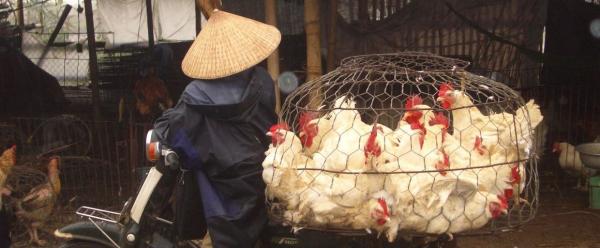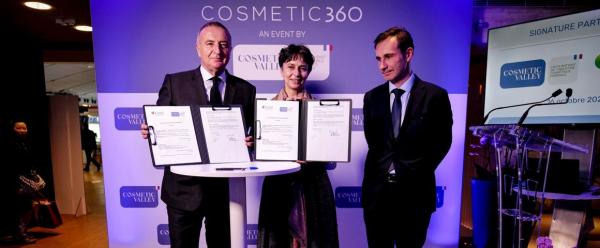Institutional news 21 January 2026
- Home
- Press area
- Press releases
- Crises and agricultural and food transitions
In response to current crises, more than 40 research institutions have committed to accelerating global transitions

Research institutions from 23 countries were represented at the first CIRAD Partners' Meetings © C. Cornu, CIRAD
For the first time, CIRAD invited 40 of its partners to Montpellier on 27 and 28 June. Those partners came from 23 countries in Africa, Asia and Latin America. The aim of the meetings was to take a fresh look at how to work together on research and training in the fields of agriculture, food and the environment, to better anticipate and cope with health, food, energy, social, security, economic and environmental (climate change and biodiversity erosion) crises.
Following these two days of meetings, the participants confirmed their belief that strengthening scientific cooperation between all the world's countries is the only means of overcoming this widespread "multi-crisis".
Through the "Montpellier Declaration", they have committed to five shared objectives for their work in partnership:
1. To accelerate agroecological, energy and food transitions to ensure greater resilience, mobilizing new players and financial resources, to benefit the world's most vulnerable people, particularly by intensifying talks with policymakers;
2. To improve access to digital tools for research and agricultural training, taking care to ensure that they are taken on board and that they are inclusive, and that the data used are reliable;
3. To build contextualized knowledge of the societies and environments in which research is conducted, notably by including civil society (NGOs, producer groups, etc.), as well as policymakers, in existing networks such as the platforms in partnership for research and training;
4. To maintain physical interaction between people to foster collective experimentation, co-construction of solutions or joint projects (through missions, expatriate assignments, long stays, etc.);
5. To invest massively in human capital and training, notably in the field of agriculture, backing that training with quality digital tools and experimental facilities anchored in local development priorities and favouring transdisciplinarity.
Isabelle Touzard, Vice-President of Montpellier Méditerranée Métropole, responsible for the inclusive ecological transition, biodiversity, energy, agroecology and food, who was invited to the closing session of these Partners' Meetings, reiterated the merits of partnerships between local authorities and scientists "to act on every level", from local to global, in response to "fragile farming systems, threats to biodiversity and growing food insecurity". She called for ongoing dialogue with research organizations and the building of "visions for the future".
CIRAD CEO Elisabeth Claverie de Saint Martin concluded the meetings by stressing "scientists' need to be useful, to improve people's lives by generating and sharing knowledge that serves to build others types of farming and food systems". She praised the determination of all the participants to act, in view of the urgent need for transitions. "More than ever before, research must be engaged in action", the institutions attending declared.
The following day, the participants met representatives from Montpellier University of Excellence.
From now on, these Partners' Meetings will be held, in a different geographical zone.
The Montpellier Declaration is based on the conclusions of nine workshops held during the Partners' Meetings, on the following topics: the growing number of crises and international solidarity; the digital revolution and research in partnership practices; impact and accountability of research: co-construction with the stakeholders concerned; geographic mobility; partner networks and collective learning; training and capacity building; One Health: lessons to be drawn from the Covid crisis; food and nutrition security in the light of the many current crises; the combination of the climate and biodiversity crises: rethinking our agricultural production models.
Download the Montpellier Declaration
List of countries and organizations represented:
- South Africa: Agricultural Research Council, University of Pretoria, University of the Western Cape
- Argentina: INTA
- Benin: IRC
- Brazil: EMBRAPA, FUNCEME, UnB/INCT-Odisseia, Federal University of Amazonas
- Burkina Faso: INERA, CIRDES
- Cameroon: IRAD
- Cambodia: Ministry of Agriculture, Forestry and Fisheries, DALRM
- Colombia: CIAT, Agrosavia
- Costa Rica: CATIE
- Indonesia: Ministry of National Development Planning
- Ivory Coast: ESA / INP-HB
- Kenya: icipe
- Dominica: Caribbean Plant Health Directors Forum (CPHD)
- Laos: Ministry of Agriculture, RDP
- Madagascar: University of Antananarivo
- Malaysia: University of Putra Malaysia
- Morocco: ENA Meknès
- Mozambique: Eduardo Mondlane University
- Senegal: ISRA, WECARD, USSEIN
- Thailand: Kasetsart University, KU Vet Tech
- Tunisia: IRESA
- Vietnam: VAAS, NIVR (MARD)
- Zimbabwe: University of Zimbabwe



























